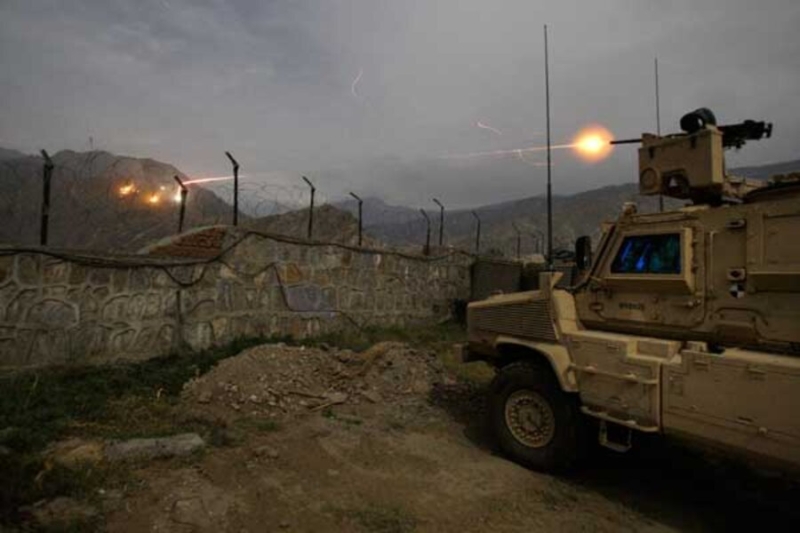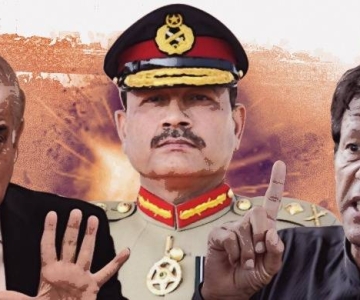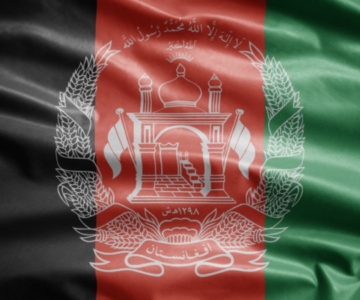The Afghan imbroglio has now come to haunt the region and perhaps the globe as well. Thirty years of destruction and violence have left a stateless and vandalized polity where the great powers of our age are scrambling for bits and pieces of territorial and political control. Alongside this, the regional players with great delusions of grandeur about their strategic interests and military might i.e. India, Pakistan and Iran are also picking up battles attempting to reinvent history or reaffirm their jingoistic sense of nationhood.
There is no question that the US invasion and subsequent battles in Afghanistan were unjust and destructive. More so, the operations of a mammoth war machine have become deeply unpopular within the US and other countries, which comprise the North Atlantic Treaty Organization (NATO). The arms industry has been the key beneficiary of this war game that does not appear to be ending anytime soon.
Prior to the Lisbon summit held in November 2010, much was made about the withdrawal of NATO troops from July 2011 onwards. It appears that the US policy is in shambles with competing centers of power and influence, yet to agree on a common way forward. More importantly, the radicalization of the Pashtun majority in Afghanistan and its dangerous identification with a resistance (some say liberation) movement is even more worrying. The Left has mistaken the rise of the Taliban as an anti-imperial cause, while the Islamists use this historical development as another sign of the move towards a global Caliphate. The Islamophobic Right-wing across western capitals is scared and even more belligerent than before. Meanwhile, the doyens of Al Qaeda sit in their bunkers somewhere along the Pak-Afghan border and smile at how efficaciously their agenda is being carried out by all the concerned parties.
After nine long years, the US has achieved little in Afghanistan. The war, which started in October 2001, is now one of the longest wars in American history along with the Vietnam War. The incumbent President Barrack Obama has already tried changing generals, increasing troops, and reaching out to allies but to little or no effect. Many pundits believed that the sole reason for increased violence and the rise of insurgency in Bush era was the fact that the Afghan War had gone off the radar with the primary focus shifting to Iraq. However, the recent turn of events has proven otherwise. Even with Obama having met the demands raised first by General McChrystal and then by General Petraeus for additional 35,000 troops and resources, the President is still struggling to find key areas, which he can sell as success points to the American public. Insurgents have only grown stronger while the Afghan National Forces are still not capable of providing security to ordinary Afghan people. The Afghans still believe that once the NATO-led coalition forces leave, they will be left completely at the mercy of insurgents, a bitter reality they are trying to reconcile with.
Similarly, the relationship with Pakistan has left much to be desired. Pakistan, indispensable for the success of NATO in Afghanistan, is aggrieved that the US is not addressing its genuine concerns in the region, while the US holds that its chief ally in this war is not all that clean. The relationship is that of distrust despite the day-to-day tactical cooperation and functional interdependence.
The US administration has been avoiding loaded yet empty terms such as nation-building and fostering democratic values given that the game is all about security. An exit strategy is being deliberated without much clarity. NATO countries have agreed upon a 2014 deadline for handing over security functions to Afghan National Forces and probably the end of all combat operations by international troops. The training of Afghan security agencies will continue beyond that.
The recent gains made by the Republicans in the House of Representatives and the winning of additional seats in the Senate have raised concerns in the White House vis-a-vis Afghan War strategy. The strategy, which already seems to be spelling failure, will now face additional hurdles from the Congress. The Republicans have vowed to attack the withdrawal date of July 2011 announced by Obama even though the President has already started distancing himself from it. Republicans have always been averse to Biden’s proposal of reducing the number of troops in Afghanistan. Republican Buck McKeon, who is being named as the next head of Armed Service Committee, has publicly pledged to work in close collaboration with General Petraeus and commit more resources to the war. The election results have once again proved that for American voters the primary concern is the domestic economy and not a war being fought thousands of miles away.
The US economy is still reeling under the financial strain caused by the Iraq adventure. Over $3 trillion have been spent on a failed war. The end of Iraq war has coincided with the period when the US is coming out of one of the greatest recessions in its history. Iraq mess also diverted the focus from Afghanistan, as the allies were themselves divided on how to handle the complex situation in Iraq right from the very start.
Bob Woodward’s new book ‘Obama’s Wars’ also reveals how divided the US administration was on the Afghan war strategy. The stark division between the Pentagon and White House has left the President in the middle struggling to reconcile the two sets of players in the broader strategic agenda. According to Woodward, the Vice President Biden and Douglas E. Lute, President’s advisor on Afghanistan, harboured doubts over Obama’s decision to grant generals what they asked for.
Obama has also been wary of the fact that he has to come up with a formidable exit strategy before the end of his first term. Critics note that with increasing the number of troops in Afghanistan, Obama has also upped the ante on the exit strategy. It’s like asking the generals to show some results before the pullout. But this is also a flawed strategy, as the Taliban on the negotiating table will not play ball if the generals are pushing for results. Hence the logjam.
At the heart of the matter lies the India-Pakistan cleavage, which remains unaddressed for various reasons by the US and by extension NATO. Peace in Afghanistan cannot be secured unless the two regional players are on the same page and willing to disengage from their narrow definitions of national interest. Similarly, Iran is a genuine stakeholder and its strained relations with the West especially the US are likely to impair the prospects for stability.
The million-dollar question is, how in a diverse and faction-ridden polity such as Afghanistan, a rule-based national security apparatus can be created. More importantly, how would these security factions negotiate with the warlords in the North and the Taliban commanders in the South? This is why state building will remain a priority and perhaps the greatest challenge.
Here’s the real dilemma. Pakistan will be even more volatile despite the pullout due to Al Qaeda’s penetration in Pakistani society and the splintering and multiplication of militant groups including the Tehreek e Taliban Pakistan. India is not likely to look beyond its short-termist, grandiose claims of influence; and the Iran-US relations are not likely to improve. Literal and metaphorical landmines infest the region. There is no alternative to a broader regional cooperation framework where all players have a stake in an exit strategy. Above all, any such strategy is likely to fail if it sidelines the urgent task of healing a deeply wounded country.
A version of this piece appeared in South Asia Magazine (December 2010 issue)



